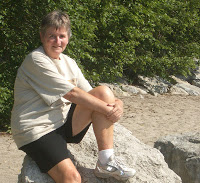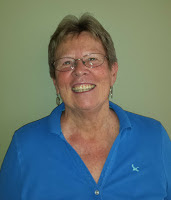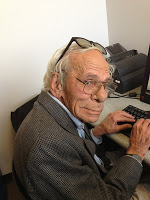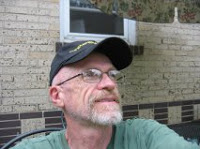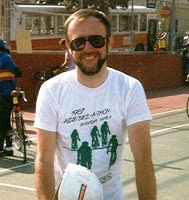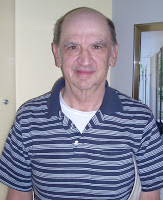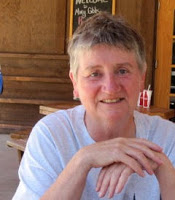The first person I came out to was my cat; came out to out loud, in words, I mean. Of course, inevitably, the very first person I came out to was myself. You cannot tell someone something you don’t know yourself, can you? As I remember it, after more than thirty years, this bolt of lightning hit me out of the blue and all the bright lights suddenly blazed; my world became crystal clear. I know it was not really so very sudden. I had been mulling it over subliminally in the depths of my confused soul for as long as I can remember. It was the total recognition, the acceptance, of the reality which was sudden.
But, back to the cat. (And anyone here who does not consider a cat to be a person, clearly has never been owned by one.) My cat was female and liked to cuddle up to me on my bed at night, so I felt she ought to know. Besides, I had never said the actual words out loud and I thought I should probably practice. She jumped up on my lap and gazed curiously into my eyes as she so often did. I always wondered what she saw there.
‘So, Smokey,’ I said, looking back straight into her eyes, ‘Your human is a lesbian. Gay. Queer. What do you think about that?’
The words did not sound at all frightening to me, I discovered. But then I was addressing the cat.
She continued her unblinking gaze, then slowly narrowed her eyes to nothing more than little yellow slits. I could swear I heard a contemplative, hmmmmmmmm. The eyes sprang open and a little furry paw patted very gently at my cheek. She butted her head affectionately under my chin, then curled up on my lap and went into full-throttle purr mode.
Well! I thought. This coming out business is not so bad; not bad at all!
The next people I came out to were, of course, my husband and step-children. It was not easy, but the response from the kids was all of the as long as you’re happy that’s all that matters variety, as it was from my husband after a while when he had time to get over the shock.
I have no siblings, so next should have been my parents. I agonized over that one for some time, eventually deciding against it. They were in England, far from my day-to-day life. They were old. It seemed nothing other than selfishness to tell them something which I knew would cause them to worry. They would love me just the same, I knew that without the slightest doubt, but they would be unable to grasp what my new world looked like. At this stage, I scarcely new!
Had they still been alive later, when I found a happiness I had never dreamed of with my Beautiful Betsy, I would have shared it with them, but they were dead by then. I have no regrets. I believe I made the right decision.
I did come out to cousins and several childhood friends, who responded unanimously with the basic message that it must have made life difficult and I’m so glad you are happy now. I have some very good people in my life.
In fact, I have very many wonderful people in my life. Over the years I have come out to countless people, I have no idea how many. Very rarely the result was negative, occasionally a little tepid, but the overwhelming majority of people responded positively, with complete acceptance and support.
A few years ago, I was chatting with a group of people at the Senior Center. I mentioned my partner, and went on to talk of something, I forget what, that she was doing. Oh! I realized in surprise that I had just outed myself without any thought; without first shoving it through my internal filtering system of shoulds and whens and whys. Oh the freedom of it. I felt so liberated, and ever since then have really given little thought to coming out, or even of thinking of it in those terms.
It’s strange how things morph over time. In my early coming-out days, the word lesbian seemed a bit intimidating; a word to be whispered while glancing furtively over the shoulder to see who else might hear. From there I went into my out, loud, and proud years when I didn’t give a damn who heard, and now I see little need for the word at all. I am quite simply a woman very deeply in love with a woman. If you feel the need to put a label on that, feel free. I don’t.
In fact, rather to my own surprise, I find myself to be vaguely offended by those little boxes I am asked to check.
Do you consider yourself to be –
straight
gay
lesbian
bisexual
transgender
etc. etc.
(And while we’re on the topic, stop asking me to check the box which tells you if I am single, married, widowed, or divorced. That is nothing to do with you, either. Except, possibly, if you are the IRS, which seems to be the possible exception to anything and everything.)
But, back to the cat. In all my coming-outs over thirty-something years, no response has ever come close to the lofty heights set by Smokey. No-one I came out to ever lovingly patted my cheek. Nobody nuzzled their head on my neck, and most assuredly no-one ever curled up on my lap. As with many of life’s experiences, the first was definitely the best.
© May 2016
About the Author
I was born and raised in England. After graduation from college there, I moved to the U.S. and, having discovered Colorado, never left. I have lived in the Denver-Boulder area since 1965, working for 30 years at IBM. I married, raised four stepchildren, then got divorced after finally, in my forties, accepting myself as a lesbian. I have been with my wonderful partner Betsy for thirty years. We have been married since 2013.
